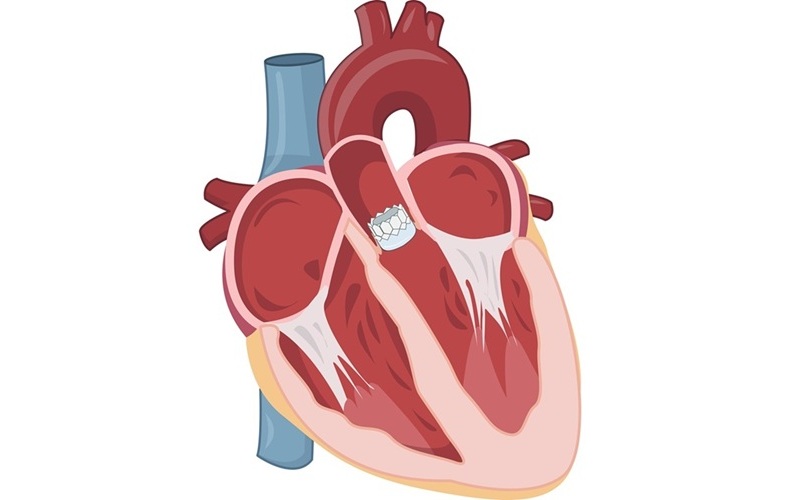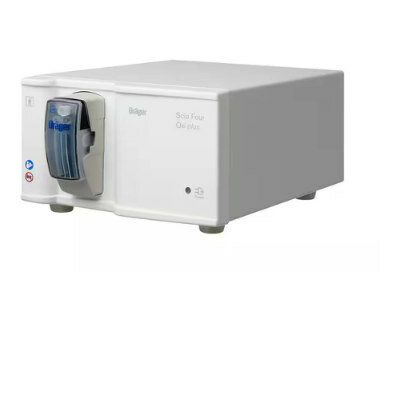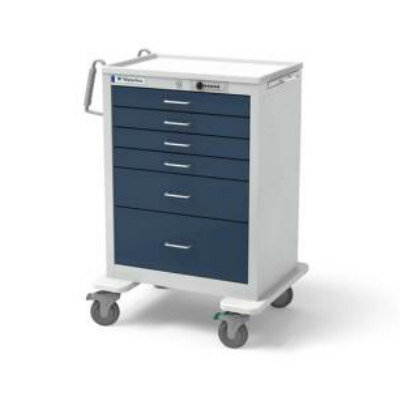AI-Powered, Internet-Connected Medical Devices to Revolutionize Healthcare, Finds Study
|
By HospiMedica International staff writers Posted on 03 Apr 2025 |

A new study suggests that artificial intelligence (AI)-powered, internet-connected medical devices have the potential to transform healthcare by enabling earlier detection of diseases, real-time patient monitoring, and personalized treatments.
Wearable devices are already proving life-saving by detecting heart issues early, prompting emergency responses, and preventing further complications. The Internet of Medical Things (IoMT), driven by AI, connects medical devices for continuous monitoring and analysis, ranging from smartwatches to hospital equipment. For instance, a wearable heart monitor can identify abnormal rhythms and send alerts right away. This research, conducted by the University of Technology Sydney (UTS, Ultimo, NSW, Australia), offers a comprehensive roadmap for incorporating IoMT into healthcare systems, showing its potential to boost efficiency, reduce costs, and overcome challenges such as security and compatibility with other systems. For patients, this means improved health management and fewer visits to the hospital, while offering peace of mind for families, particularly those with elderly members or individuals with chronic conditions. IoMT is making healthcare smarter, more secure, and more responsive.
Published in the journal Results in Engineering, the study emphasizes IoMT's potential to improve patient outcomes, ease the burden on hospitals, and cut costs, making it a vital component for the future of healthcare. It discusses the broad impact of IoMT on healthcare—its advantages, challenges, and real-world applications—and presents groundbreaking results such as AI-powered IoMT achieving 99.84% accuracy in diagnosing heart disease from medical imaging and enabling real-time seizure detection. The study also addresses the challenges of incorporating AI-driven IoMT technology into healthcare, particularly the need for robust data security, device compatibility, and enhanced regulations to maintain patient trust and safety. This research is valuable to patients, healthcare providers, policymakers, and MedTech innovators, all of whom are interested in advancing healthcare access, accuracy, and efficiency through AI and connected technologies.
“For healthcare providers, investing in IoMT means upgrading digital infrastructure, training staff, and adopting remote monitoring for proactive care. IoMT also requires clear regulations and standards to ensure security and patient privacy,” said Associate Professor Shams Forruque Ahmed who is leading the study.
Latest AI News
Channels
Surgical Techniques
view channel
Bioprinted Aortas Offer New Hope for Vascular Repair
Current treatment options for severe cardiovascular diseases include using grafts made from a patient's own tissue (autologous) or synthetic materials. However, autologous grafts require invasive surgery... Read more
Early TAVR Intervention Reduces Cardiovascular Events in Asymptomatic Aortic Stenosis Patients
Each year, approximately 300,000 Americans are diagnosed with aortic stenosis (AS), a serious condition that results from the narrowing or blockage of the aortic valve in the heart. Two common treatments... Read more
New Procedure Found Safe and Effective for Patients Undergoing Transcatheter Mitral Valve Replacement
In the United States, approximately four million people suffer from mitral valve regurgitation, the most common type of heart valve disease. As an alternative to open-heart surgery, transcatheter mitral... Read morePatient Care
view channel
Portable Biosensor Platform to Reduce Hospital-Acquired Infections
Approximately 4 million patients in the European Union acquire healthcare-associated infections (HAIs) or nosocomial infections each year, with around 37,000 deaths directly resulting from these infections,... Read moreFirst-Of-Its-Kind Portable Germicidal Light Technology Disinfects High-Touch Clinical Surfaces in Seconds
Reducing healthcare-acquired infections (HAIs) remains a pressing issue within global healthcare systems. In the United States alone, 1.7 million patients contract HAIs annually, leading to approximately... Read more
Surgical Capacity Optimization Solution Helps Hospitals Boost OR Utilization
An innovative solution has the capability to transform surgical capacity utilization by targeting the root cause of surgical block time inefficiencies. Fujitsu Limited’s (Tokyo, Japan) Surgical Capacity... Read more
Game-Changing Innovation in Surgical Instrument Sterilization Significantly Improves OR Throughput
A groundbreaking innovation enables hospitals to significantly improve instrument processing time and throughput in operating rooms (ORs) and sterile processing departments. Turbett Surgical, Inc.... Read moreHealth IT
view channel
Printable Molecule-Selective Nanoparticles Enable Mass Production of Wearable Biosensors
The future of medicine is likely to focus on the personalization of healthcare—understanding exactly what an individual requires and delivering the appropriate combination of nutrients, metabolites, and... Read more
Smartwatches Could Detect Congestive Heart Failure
Diagnosing congestive heart failure (CHF) typically requires expensive and time-consuming imaging techniques like echocardiography, also known as cardiac ultrasound. Previously, detecting CHF by analyzing... Read moreBusiness
view channel
Expanded Collaboration to Transform OR Technology Through AI and Automation
The expansion of an existing collaboration between three leading companies aims to develop artificial intelligence (AI)-driven solutions for smart operating rooms with sophisticated monitoring and automation.... Read more
















